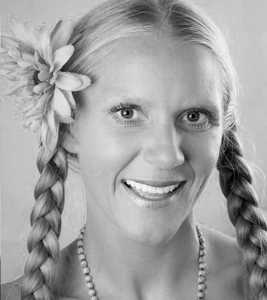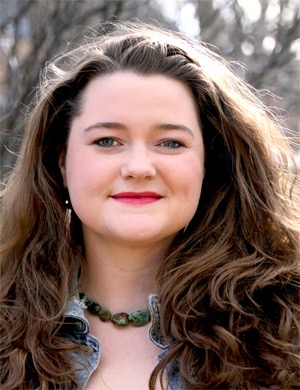There is a major problem in the medical marijuana industry. Doctors and nurses aren’t being trained in the science of cannabis.
Without clinical research, physicians and nurses across the country are finding themselves faced with a dilemma: prescribe a product they know nothing about or try to gain an education on a topic with very little reliable scientific information.
Hesitation and Roadblocks in Cannabis Research
More than thirty states now recognize legal medical cannabis. The first of which passed their legislation twenty-two years ago.
Somehow, Americans decided it was acceptable to sell medical pot without conducting rigorous scientific studies on the substance. That’s because federal prohibition prevents the substance from being studied in any real depth.
The consequence is medical practitioners can’t cite enough research to their patients, they can’t make informed recommendations, and many don’t even feel comfortable prescribing the “medicine” because they know so little about its effects.
What’s the downside? The opioid crisis stemmed from a lack of solid research, corporate interests, and doctors who were too quick to adopt opioids as a regular prescription for pain. And while cannabis is a very different matter than opioids, the hesitation to go all in on medical cannabis (particularly in prescriptions for children) is understandable.
A 2017 survey conducted in Washington state concluded that only a fraction of doctors who are legally allowed to prescribe the substance had actually done so.
The rest said they didn’t feel confident enough in their knowledge of cannabis to advise patients on its use. And not-so-surprisingly, those who had cannabis training were more likely to prescribe the substance than those who had never been educated on the topic.
Gaps in Education
How can patients expect to receive helpful medical advice on a topic that most doctors have never studied?
“They’re working with patients every single day and they don’t understand the Endocannabinoid system. I know, personally, when this information sunk in my head, that I did not learn about an entire body system in nursing school, I had a slew of emotions,” confessed licensed Cannabis Nurse Heather Manus.
“One of them was anger. I was angry that I had been practicing with patients without having a full understanding of their bodies.”
Manus is one of many licensed nurses who are working to educate the medical community about cannabis as medicine.
“We’re really trying to reach mainstream nurses, because at this point we’ve got to have people in the room who don’t believe in what we’re saying so we can help unravel the mystery for them and help them start this journey of understanding,” she explained.
A survey conducted among residents and fellows training at the Barnes-Jewish Hospital revealed that eighty-five percent of respondents had learned nothing about it in their studies.
And only 9 percent of medical schools cover medical cannabis as part of their curriculum, according to the Association of America Medical Colleges.
If medical practitioners aren’t learning about it and patients are still receiving it, how can they obtain reliable medical advice about their cannabis treatment plan?
Budtenders as Medical Advisors
For a time, patients were receiving information about various therapeutic effects from their local budtender. Licensed retail distributors were often the primary source of information about strain varieties, cannabis compounds, and which products would provide the most relief.
However, in many states, the Marijuana Enforcement Division set strict rules on what budtenders are allowed to say.
Providing any kind of medical advice or making claims as to a product’s therapeutic value is now strictly prohibited and could cost a dispensary its business license.
Cannabis Nurse Manus finds the law limiting: “Putting laws in place stating that you simply cannot talk about health issues regarding cannabis in a dispensary, it does a disservice to the patients and the company.”

Finding Trusted Sources
Thankfully, the stigma is slowly lifting and federal legalization seems more attainable with each passing year.
In July of 2018, the National Council of State Boards of Nursing published the first regulations and guidelines regarding cannabis patient care.
It’s a step in the right direction for an industry with few educational resources.
Nationwide, nurses are still considered one of the best resources for care questions: “The Gallup Poll for 2018 reported that for the 17th consecutive year in a row, nurses are ranked number one for ethics and trust among Americans,” cited Manus.
Patients often ask her if cannabis will help their specific symptoms, and sometimes more urgently, how they can stay legal while undertaking a cannabis treatment plan.
Manus and other cannabis nurses are well-versed in these topics and can often provide valuable insights to patients with a long list of unanswered questions.
Resources for Medical Professionals
Outside of the limited medical school curriculum, there are several options for medical professionals seeking to expand their understanding of the subject.
The Cannabis Nurses Network Conference (CNNC) is one such avenue, offering nurses and licensed medical professionals an opportunity to advance their understanding of cannabis medicine.
As an educational conference, attendees spend a full day earning continuing education credits (CEU) in cannabis medicine education.
This year’s event will be the largest gathering of cannabis nurses in the country and will cover topics ranging from post-traumatic stress to geriatrics to opioid dependency.
Continuing education classes are also available through other providers, such as The Society of Cannabis Clinicians, The Medical Cannabis Institute, and The Alcohol & Drug Abuse Institute, to name a few.
Education isn’t the only aim of these industry events. They also act as a platform to unite medical professionals, help them feel supported, and empower them to have more honest and thoughtful conversations around cannabis.
Resources for Medical Patients
Aside from Google, there are few resources where patients can find reliable information. One might conduct their own research by checking out the Center for Medicinal Cannabis Research, which is rife with studies and publications surrounding medical use.
Alternatively, speaking with a qualified cannabis nurse can be a good place to start.
“Coming to a nursing organization is a great way to get valid information that has references and resources attached,” explained Manus. “There’s a lot of conflicting information out there, simply because we’re in the process of learning more. But patients can trust cannabis nurses for solid information.”
Learn more about the speakers, topics, and educational opportunities taking place at the 2019 Cannabis Nurses Network Conference by clicking here.
Author
-

Patricia Miller is an executive editor at Innovative Properties Worldwide. She explores science, technology, and policy shaping the legal cannabis sector. Follow her work when you subscribe to Cannabis & Tech Today at cannatechtoday.com/subscribe/ or visit her website https://patriciamiller.squarespace.com/.





